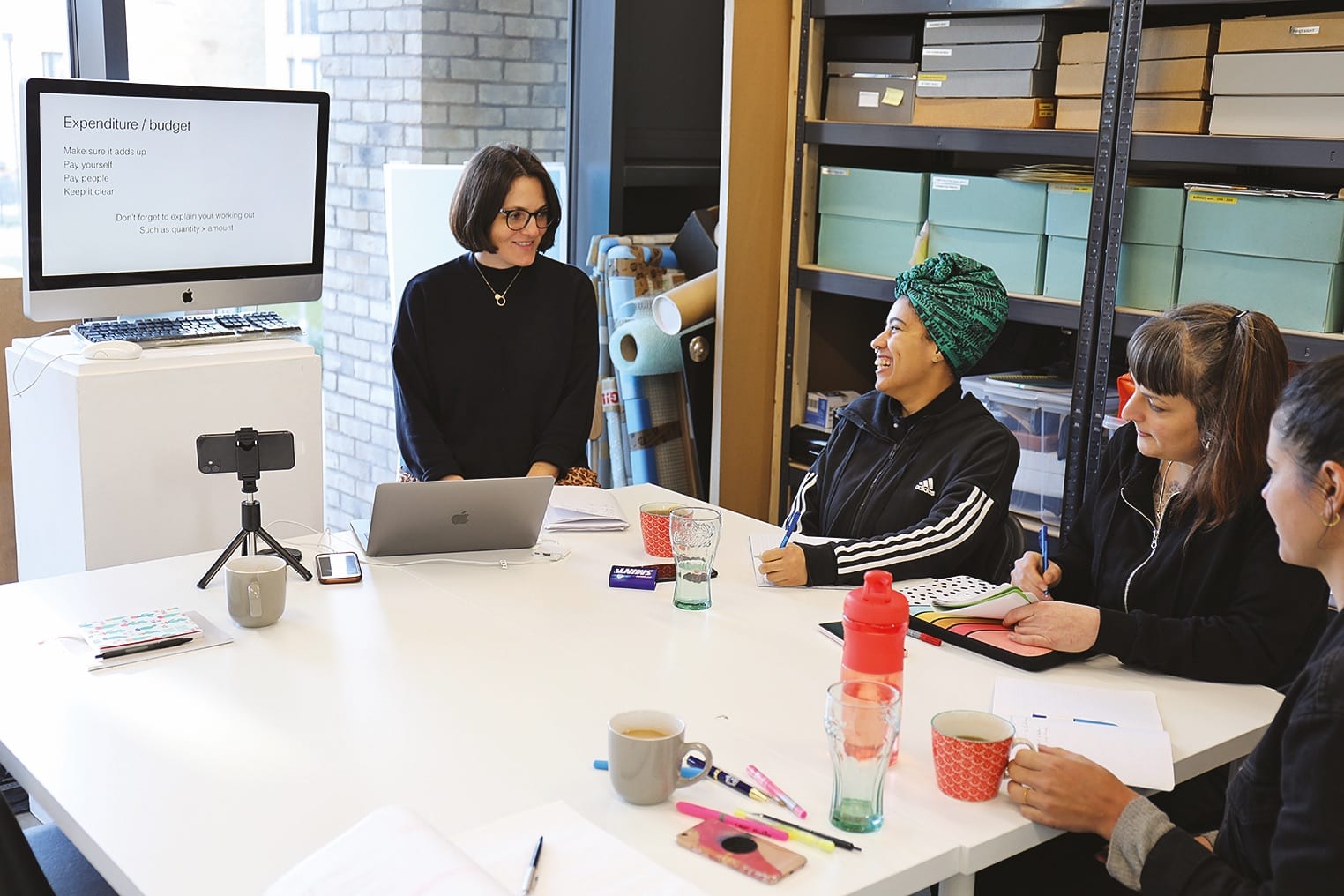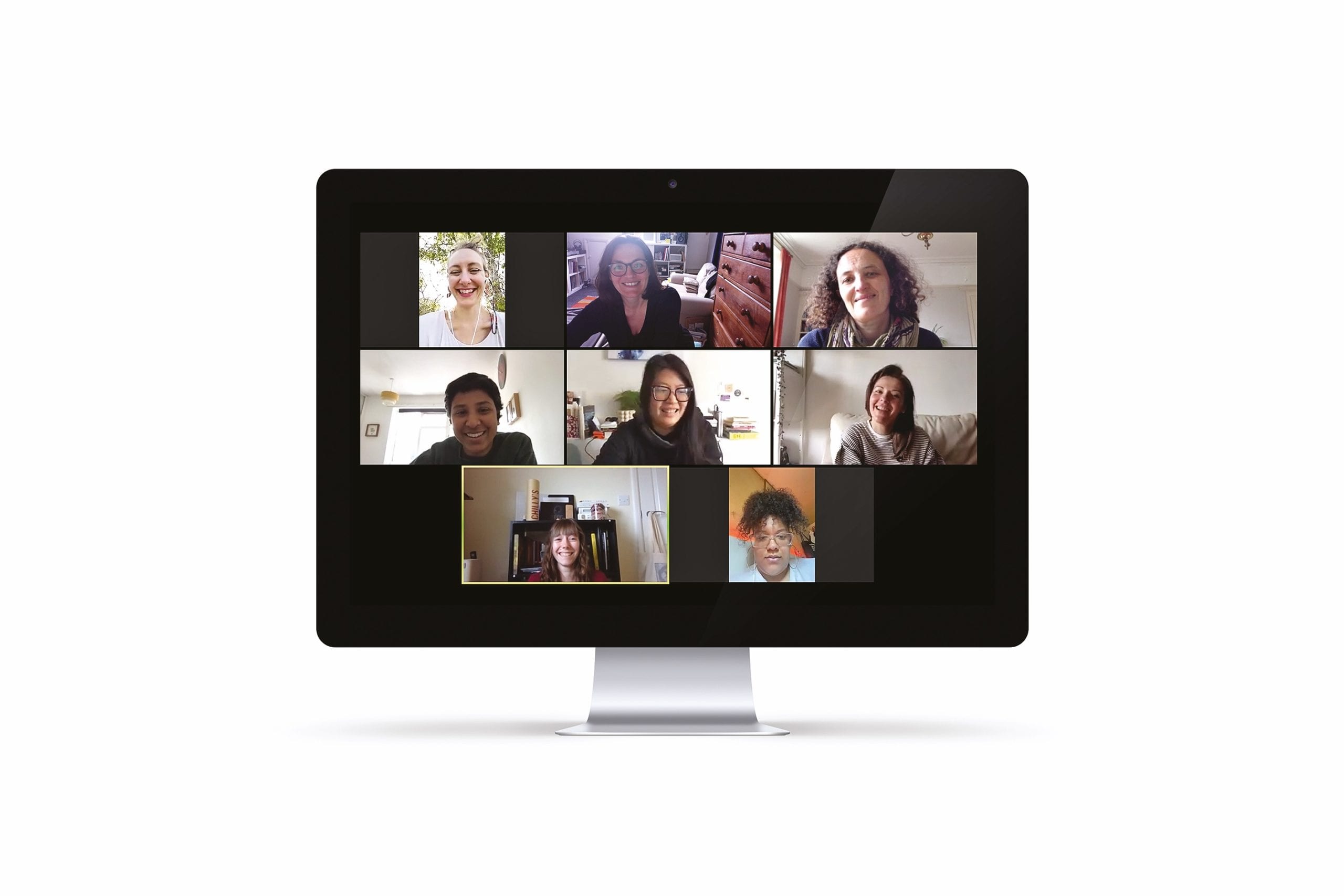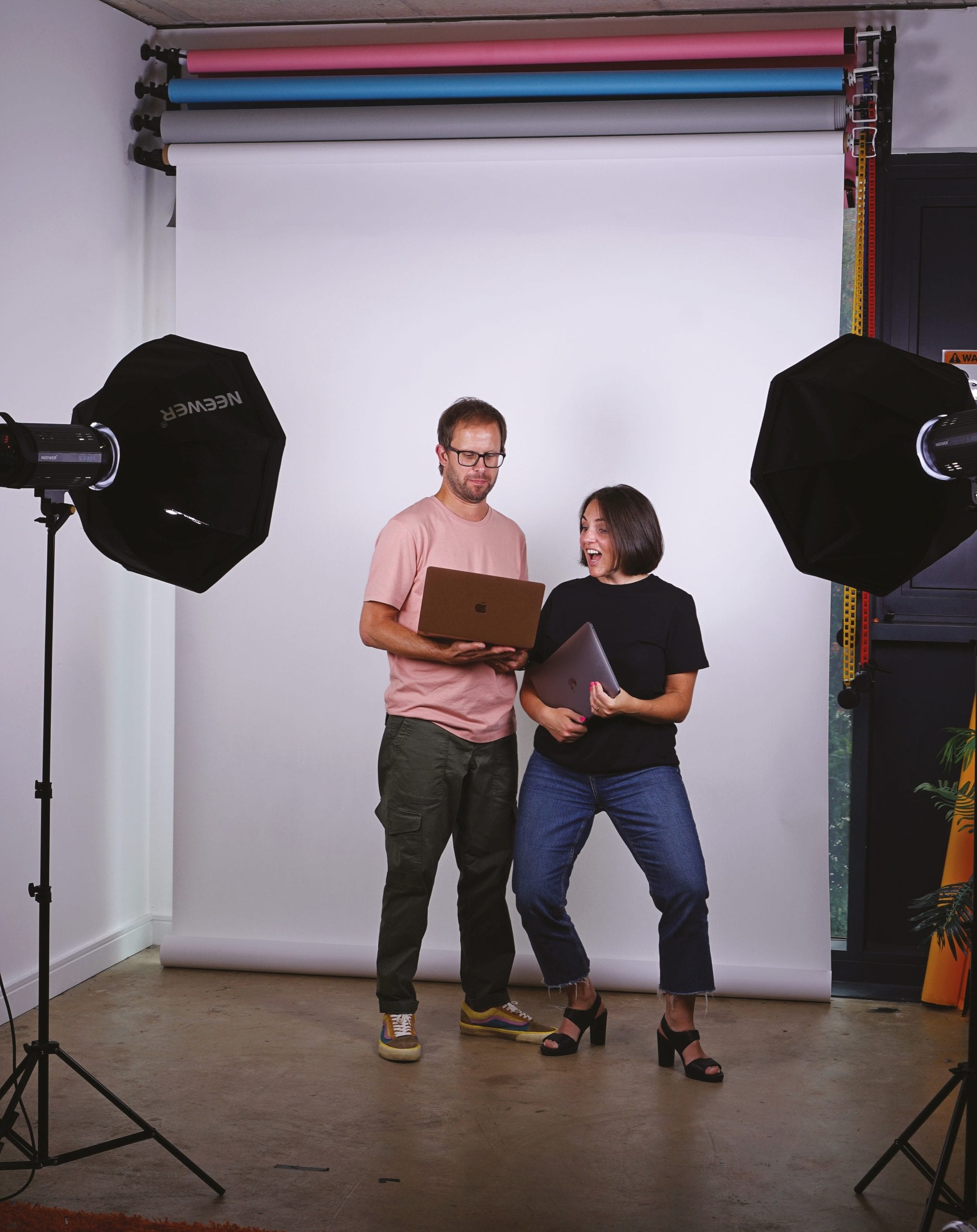We speak to Natasha Caruana, co-founder of Work Show Grow: a new virtual school and platform with confidence, inclusivity and community at the heart of its curriculum
“Creativity is filled with crippling self-doubt. People are scared of failure,” says artist and educator Natasha Caruana. Those who follow Caruana on Instagram will be familiar with her daily doses of candid optimism and mantra: that an attitude of positivity, productivity and confidence can transform your career. This belief forms a large part of what sits at the heart of her new venture, Work-Show-Grow (WSG), an online ‘career’ school, launched in September. “There is a gap in formal education, where we teach a concrete syllabus, but we don’t teach the mindset of how you should pursue your career,” says Caruana, who is also a senior lecturer of photography at University for the Creative Arts, with 15 years of teaching experience.
Focusing on personal as well as professional development, the virtual school offers three key services. Every Monday, Caruana will lead a group mentoring session focusing on practical skills, such as social media strategy, pricing work and networking. Then, each month, a guest expert will be invited to lead a workshop on a particular skill or subject. The line-up so far includes Maria Kapajeva, who will tune in from Estonia to discuss working with communities, and Kurt Tong, who will speak about family narratives from Hong Kong. These will be supplemented by monthly peer-led critique sessions in smaller groups of eight to 10. This all comes at a price of £55 per month.
The core programme will be delivered by Caruana and her husband, Simon Sweetman, a producer with a background in theatre and print media, and supported by an international team of freelancers and guest experts. The events will alternate between mornings and evenings to accommodate members in different time zones, and will be uploaded to a resources library, which will be accessible on demand. What really sets WSG apart from other photography schools, however, is its network. All members will be connected through a private Slack channel, where they will be able to give and receive advice and criticism from their peers, any day, any time.
“With universities and institutions being put into the spotlight, we’ve seen a need for a platform like this”

With accessibility and inclusivity at the heart of its mission, WSG has the feel of a product created for the post-Covid-19 world. In fact, its journey began long before the pandemic. The idea to run workshops was formed in 2018, during Caruana’s annual trip to Les Rencontres d’Arles. “It was one of those afternoons at Arles where it was so hot, everyone was having a siesta,” she recalls. “I was like, ‘Right, I’m just gonna go on Squarespace, create a website, and make it’.”
Within two months, she was running her first WSG workshop, with Juno Calypso at Brighton Photo Fringe, titled Cold Cases. Participants were invited to create a new body of work themed around famous Brighton murders. Produced over just one day, the projects were exhibited at the Old Police Cells Museum for the duration of the festival. “It was a high-pressure environment. We had 20 go-getting students, all from different backgrounds coming together,” says Caruana. “The results were amazing.”
Over the next two years, Caruana continued hosting workshops at festivals and from her studio in London, until Covid-19 hit. “Two things have happened during the pandemic,” says Caruana. Firstly, the landscape of education shifted; universities migrated onto online forums, which democratised where people can learn. In response, during the first two weeks of lockdown, Caruana set up The Interval, a programme of free artist talks, Q&As and wellness exercises hosted on Instagram. The line-up included international guests, such as photographer Laia Abril, and Anne Alagbe, visual artist founder of Africa’s first contemporary photography title, No! Wahala Magazine. Scheduled every Thursday, the talks attracted a global audience, which has grown from 500 to over 4500 – increasing near tenfold since March. Secondly, in May, the Black Lives Matter movement amplified conversations about ethics, decolonisation and deinstitutionalisation, revealing the systemic inequality within the photography industry.
All of this compounded the need for more transparency, accessibility and diversity, which ultimately fed into the development of the WSG school. “One of our big ambitions is to have artists from all over the world talking to one another,” says Caruana. “With universities and institutions being put into the spotlight, we’ve seen a need for a platform like this.”

As the first family member to attend university, Caruana values the freedom that education has brought to her life. But studying on one of the most prestigious photography courses in the country (the photography MA at the Royal College of Art in London) did not pave an easy road to success. “It was so weird for me when I started to get recognised, after struggling for seven years and trying to get my work out there,” she says. In 2014, Caruana received international acclaim when she won the BMW Artist in Residence Award at the Nicéphore Niépce Museum, which led to solo shows at Les Rencontres d’Arles and Paris Photo. As a way to give back, the photographer saved some of the commission money to set up a free mentorship, which she continues to maintain to this day as part of her practice.
In a way, she says, the WSG platform allows her to open up that expertise to more people and on a global scale. “Universities need a curriculum and a board. There is a formality in the way that courses are delivered,” Caruana says. “I suppose this is an informal supplement to that. It’s essentially an alternative way of developing as a creative.”
The school is open to everyone, but Caruana describes it as “female leaning”. Although the art world has made progress in recent years, female-identifying artists still face obstacles that their male counterparts may not. A famous study, first published in an internal report by tech giant Hewlett-Packard (now HP Inc), revealed that men will apply for a job when they meet only 60 per cent of the required qualifications, while women will wait until they meet 100 per cent of the desired attributes. For Caruana, this all comes down to confidence. “As a female-identifying artist, you have so much self-doubt the whole time. I want to get rid of all of those worries,” she says.
Community is at the heart of WSG, which champions a peer-to-peer approach, going against the competitive and elitist attitudes proliferated by some institutions and awards. “I believe we are stronger together. This way of working is so much more fruitful than constantly trying to get the attention of a gatekeeper or entering competitions,” says Caruana. “Everything I teach is from lived experience, and it’s better to put that time, energy and money into your own practice.”
“The spirit of the platform is to pursue something that’s entrepreneurial, diverse and inclusive, and be part of a community of winners and go-getters,” Caruana reiterates. “People who sign up are ultimately going to be part of a cheerleading club.”


